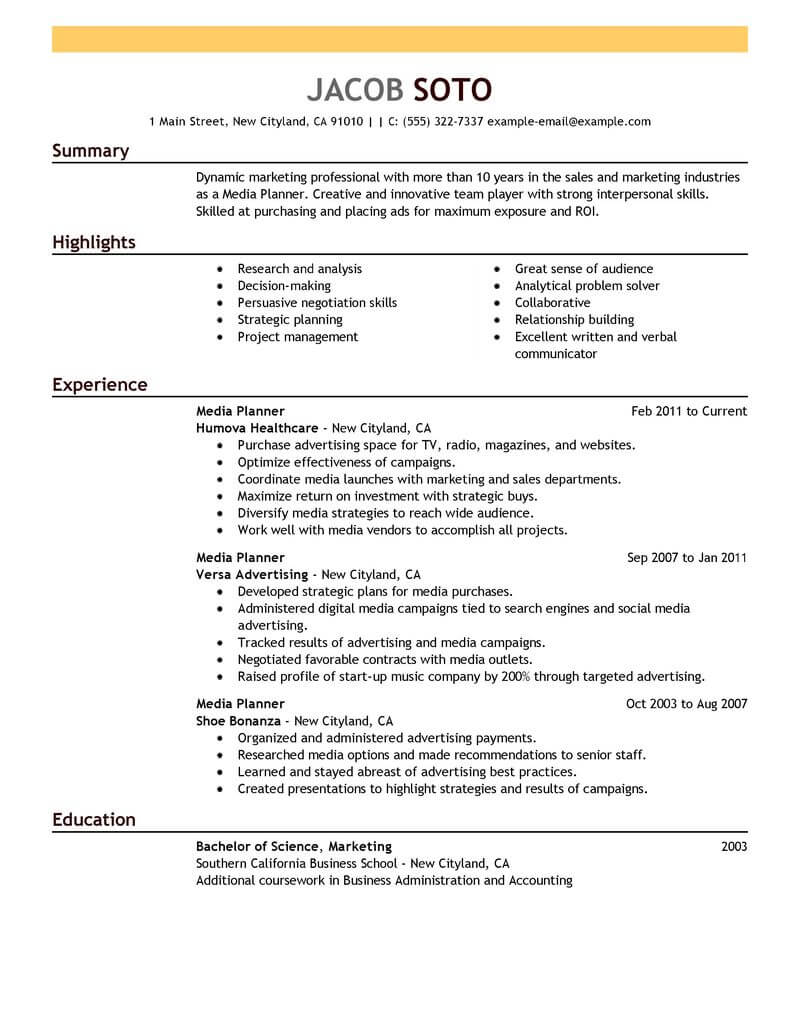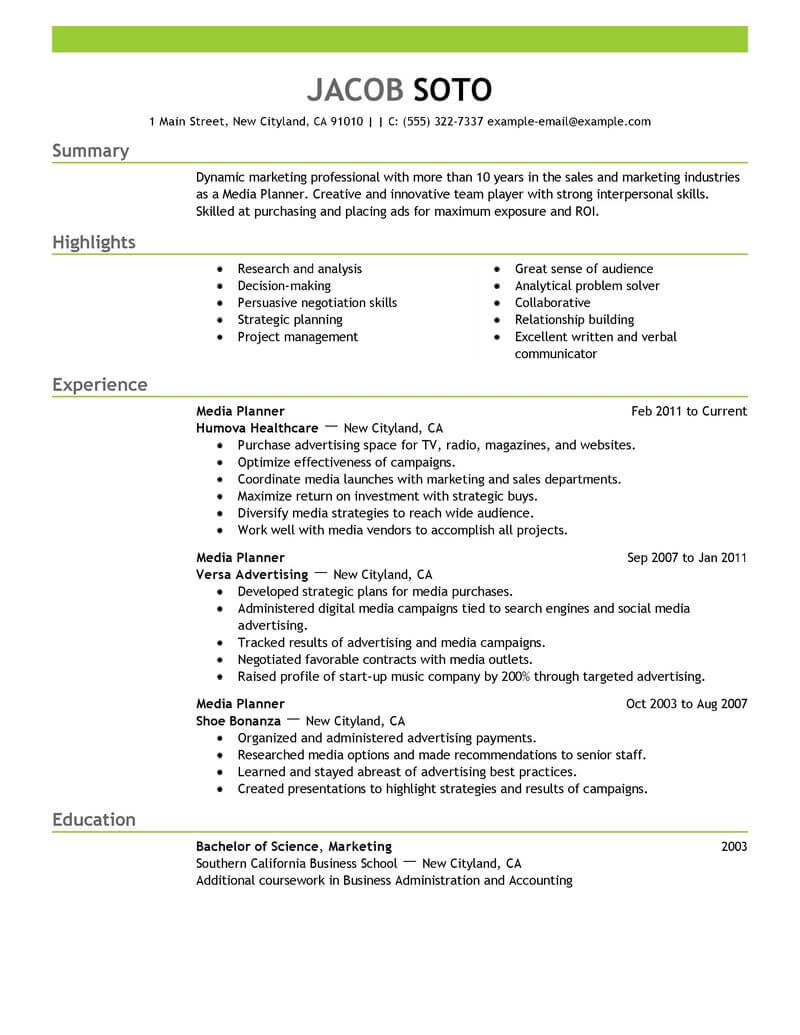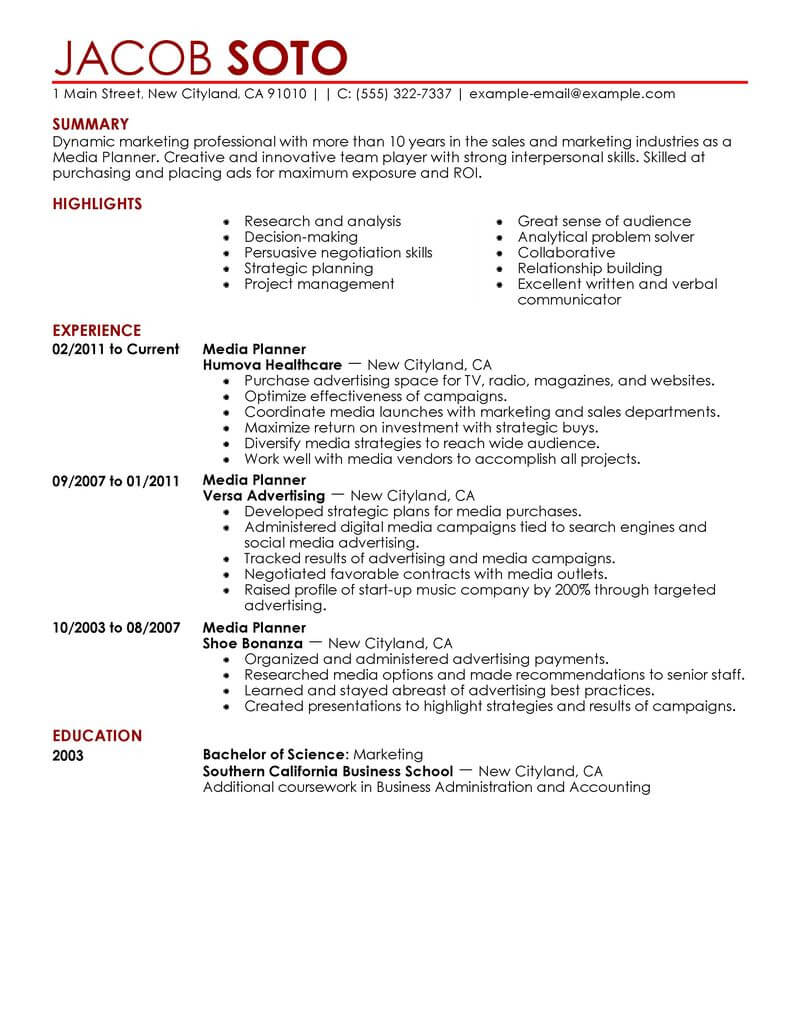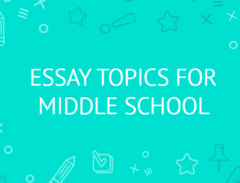Best Media Planner Resume Example
Published: Friday 24th of February 2017; Words Count: 800
Your media planner resume must demonstrate your ability to lead successful campaigns for prestigious clients. In your summary statement, use descriptive words to describe your professional persona. For example, “meticulous media planner” reveals more about an applicant than “experienced media planner.” Ensure that your resume fits that description. If you refer to yourself as “thorough,” then you can’t submit a desultory resume “â pay attention to the details, checking for spelling and grammar. In your work history section, showcase the positive results you’ve earned, using metrics to describe your successes. See the media planner resume example for more guidelines.
Media Planner Advice
Are you media-savvy? A job as a media planner could be for you. The resume examples we’ve built below are designed to help you in developing your media planner resume. Media planners help determine which media a client or brand should utilize in reaching an audience. Use these media planner-specific resume examples to see the skills and experience a media planner should highlight on a resume, then use this understanding to create your own resume!

Resume Tips for Media Planner
As the market continues to create openings, you will want a strong methodology to help you land your next employment. These simple tips can help you find jobs as a media planner.
1. Networking is everything. As markets globalize and communication tools diversify, it is ever easier to make contacts and make your name known. This means that you will be expected to proactively get your name into view of your next employer.
2. Shake hands. Computerized tools are excellent resources and should not be overlooked, but when you have the chance to meet someone face-to-face, make the most of the opportunity and create a good, lasting impression.
3. Stay tough. While jobs as a media planner are on the rise, there is still enough unemployment to create stiff competition. It may take time to get your next job, so keeping active in the hunt and maintaining a positive mentality will be important.
4. Look everywhere. Traditional resources like job fairs can be very effective, but there are growing markets that involve independent contracting and self-employment. Do your researching before settling on these options, as they can be financially risky, but ignoring them completely is a mistake.
5. Follow up on every lead. While you want to avoid being overly aggressive or pushy, following up with employers shows diligence and can help you edge out your competition.

Media Planner Job Seeking Tips
A good resume can do more to getting you hired than almost any other form of communication. It lets you sell the best of yourself to an employer in a format that benefits both of you. A few tips can help you make a resume that separates you from the crowd of people applying for jobs as a media planner.
1. Make sure they can contact you. As you obsess over the main content of the resume, don’t forget to put your contact information at the top. It should be accessible and easy to read.
2. Use numbers. Whether you find them impressive or not, concrete numbers are more compelling evidence of success than fluffy statements. Even a small positive increase that was consistent can be very appealing.
3. Stick to work that you want. You may have had massive success at a previous job, but if you hated the work, you should minimize how much you emphasize it. Doing otherwise could land you the same position again.
4. Streamline your education. If you see a block of text, try controlling it with bullets. You can also leave out points that become redundant. If you attended college, you don’t need to include your high school or GDE.
5. Stay succinct. If you have strong professional experience, it is ok to fill two pages. You should strive to never make the resume longer. If you keep in mind how much information a hiring manage has to drudge through to fill a position, it can help you streamline the presentation of your resume.






